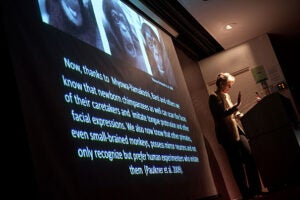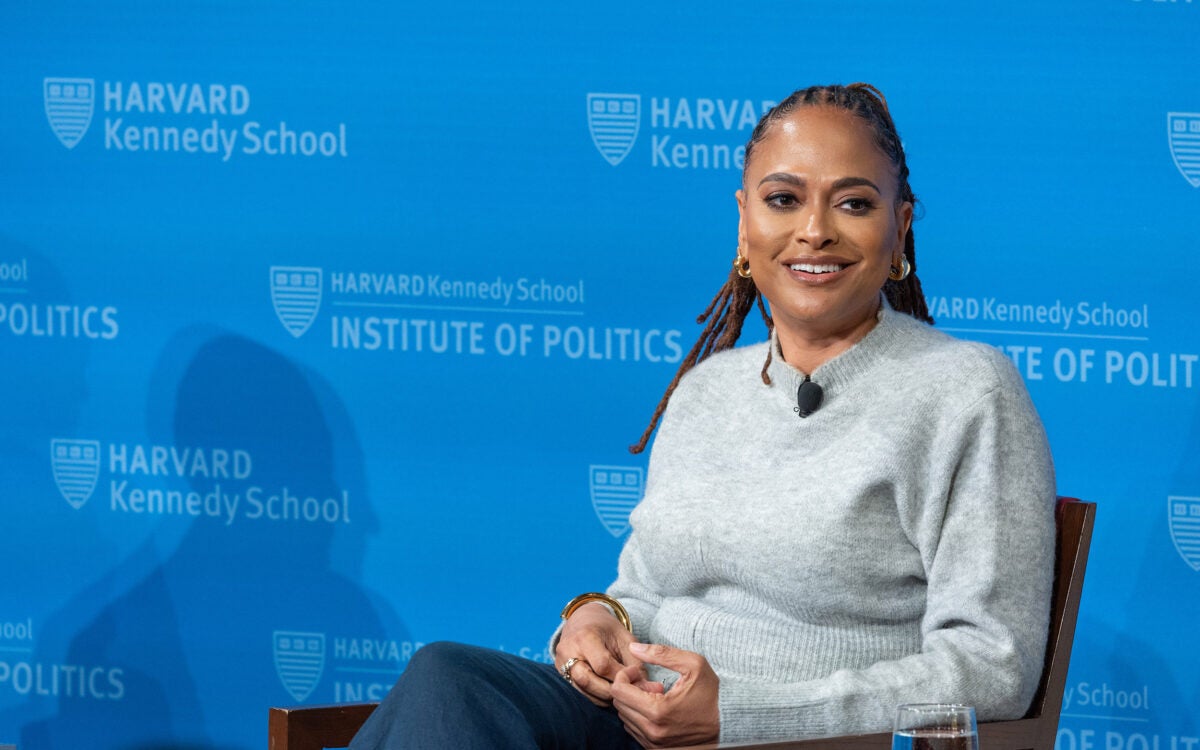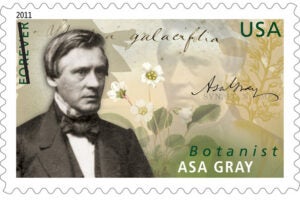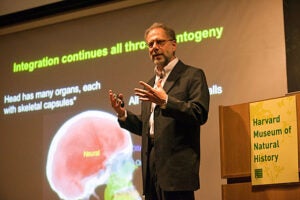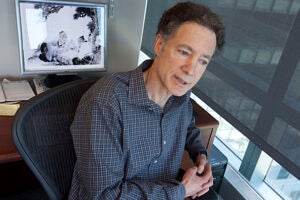Tag: Harvard Museum of Natural History
-
Nation & World
Of helixes, neurons, and chemicals
Science writer Carl Zimmer talked about the surprising number of science-oriented tattoos gotten by scientists, who wear their love of science proudly, and his related book, “Science Ink: Tattoos of the Science Obsessed,” during a lecture at the Harvard Museum of Natural History.
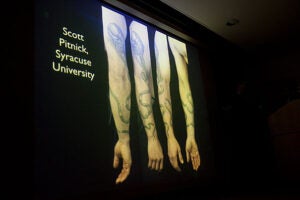
-
Nation & World
Growing strong
Steven Wofsy and Andrew Richardson discuss New England’s still-growing forests and their role as a buffer against the effects of climate change.
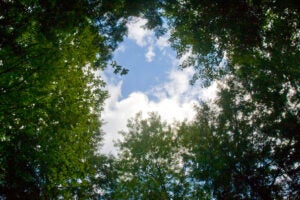
-
Nation & World
Woods, yes, but as before, no
The stunning regrowth of New England forests over the past century marks a conservation victory, but an Arnold Arboretum forest expert says there’s no turning back the clock to pre-colonial times. Today’s forests are a blend of native New England plants and invasive species, growing on a human-altered landscape.
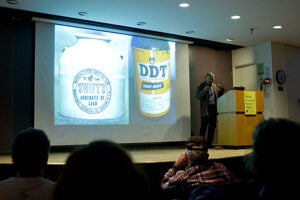
-
Nation & World
Gauging the effects of the BP spill
Research into the effects of last year’s massive BP oil spill in the Gulf of Mexico highlights the flexibility of the community of microbes living in the ocean’s depths.
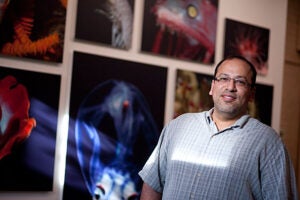
-
Nation & World
Guarding the forests
The regeneration of the region’s forests during the last 150 years is an environmental gift that New Englanders shouldn’t squander with thoughtless development, the director of the Harvard Forest said in a talk at the Harvard Museum of Natural History.
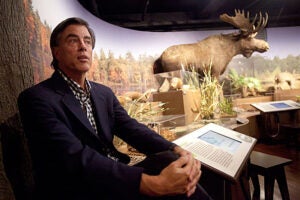
-
Nation & World
The efficient caveman cook
Harvard researchers say the rise of cooking likely occurred more than 1.9 million years ago and bestowed on human ancestors a gift of time in the form of hours each day not spent eating.
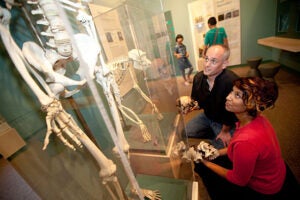
-
Nation & World
Mapping out Harry Potter’s world
The Harvard Museum of Natural History celebrates the world of J.K. Rowling’s Harry Potter in a gallery scavenger hunt that has proven to be a popular and educational experience.
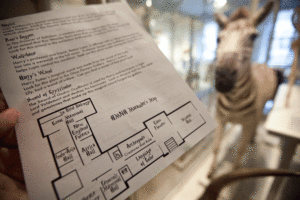
-
Nation & World
For love of the creepy, crawly
Biologists from around the world are on campus this week for an international conference on invertebrate morphology sponsored by the Museum of Comparative Zoology, the Harvard Museum of Natural History, and the Department of Organismic and Evolutionary Biology.
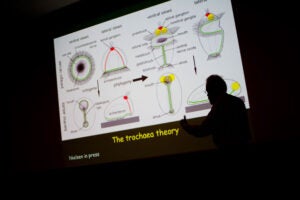
-
Nation & World
A walk through forests — without rain
New England forests are the focus of a new exhibit at the Harvard Museum of Natural History, funded by the largest donation in the institution’s history.
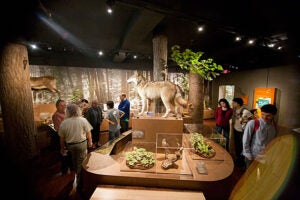
-
Nation & World
A window into college
More than 300 kindergarten and fourth-grade African-American boys visited Harvard for the launch of Impact 300, a multifaceted Boston Public Schools program aimed at closing the achievement gap and helping to prepare the boys for college. Harvard partnered with the Boston schools in the program.
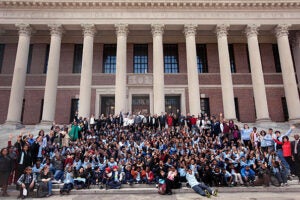
-
Nation & World
Deep thinker
Scientists are advancing in their understanding of the biology of the deep sea, which still remains largely unexplored and mysterious, according to Associate Professor Peter Girguis.
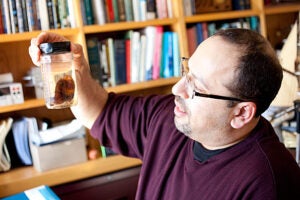
-
Nation & World
Putting things in their place
Two professors shake up Harvard’s museum collections with a new course and exhibit that aim to challenge the ways in which tangible things are classified in traditional categories.
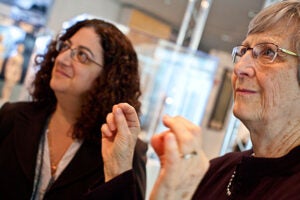
-
Nation & World
Doubting Thomas nation
Why aren’t you listening? Scientists discuss the difficulty of transferring scientific consensus to the public.
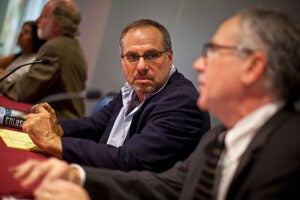
-
Nation & World
Friedman named director of Arboretum
William “Ned” Friedman, an evolutionary biologist who has done extensive research on the origin and early evolution of flowering plants, has been appointed director of the Arnold Arboretum.
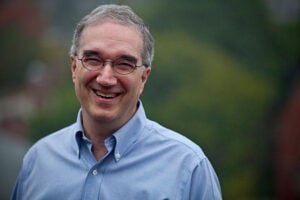
-
Nation & World
Horns aplenty
A new exhibit at the Harvard Museum of Natural History highlights the enormous diversity of antlers and horns and examines how they came into being and what they’re used for.

-
Nation & World
Time travel in chalk
Members of Professor Ann Pearson’s lab switched from science to art recently, decorating the slate panels outside the Hoffman Laboratory with depictions of three great eras in Earth’s history: the Paleozoic, Mesozoic, and Cenozoic.
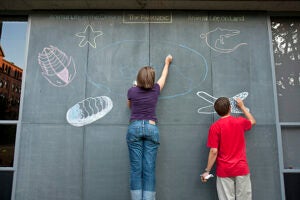
-
Nation & World
Be wary of the cassowary
Nature writer Sy Montgomery talked about her hunt for the dangerous cassowary, as well as her passion for nature, during a presentation at the Harvard Museum of Natural History.
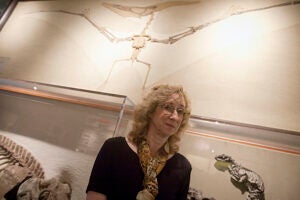
-
Nation & World
In praise of the Y chromosome
David Page, director of the Whitehead Institute and professor of biology at Massachusetts Institute of Technology, says research indicates the much-maligned Y chromosome plays a more critical role in genetics than previously believed.
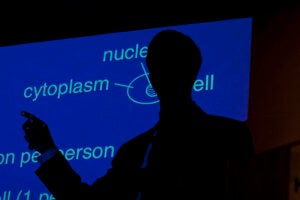
-
Nation & World
Did rapid brain evolution make humans susceptible to Alzheimers?
Of the millions of animals on Earth, including the relative handful that are considered the most intelligent — including apes, whales, crows, and owls — only humans experience the severe…
-
Nation & World
Time to change the menu
Climate change, population growth present fresh challenges to a global food supply system already showing cracks.
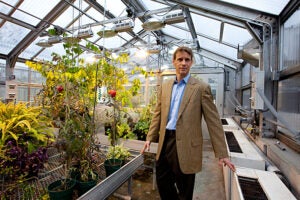
-
Nation & World
Hey squash, time for your close-up
Bruce Smith, of the Smithsonian National Museum of Natural History, discusses the rise of agriculture in a talk at the Harvard Museum of Natural History.
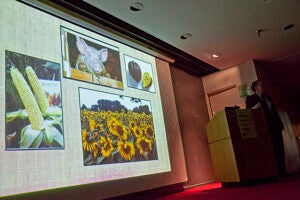
-
Nation & World
Looking at cooking
Harvard biology professor Richard Wrangham talks about the importance of cooking in human origins.
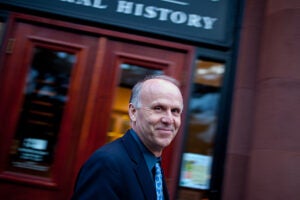
-
Nation & World
Where the wild things are
An exhibit of photos by photographer Amy Stein at the Harvard Museum of Natural History explores the boundaries between humankind and nature.
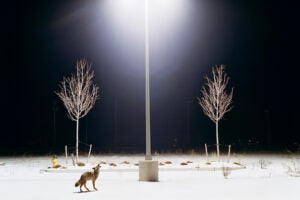
-
Nation & World
Harvard gets $500k gift for history museum
The Harvard Museum of Natural History has received its largest donation since its founding in 1998. The $500,000 commitment from a Harvard University alumnus will help fund a permanent multi-media exhibition…
-
Nation & World
Forests focus of gift
Paul Zofnass ’69, M.B.A. ’73, has become the Harvard Museum of Natural History’s (HMNH) largest donor since its founding in 1998.
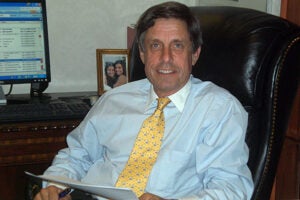
-
Nation & World
The deciding factor
What, exactly, distinguishes humans from apes? It’s certainly more than just our genes, renowned anthropologist Sarah Blaffer Hrdy. Hrdy, who received her A.B. in 1969 and Ph.D. in 1975 for work in Harvard’s Department of Anthropology, returned to speak on “Mothers and Others: The Origin of Emotionally Modern Humans.”
